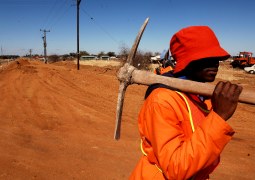
The Portfolio Committee on Labour and Employment heard on Wednesday that language was a major barrier to dispute resolutions in South Africa. The Commission for Conciliation, Mediation and Arbitration (CCMA) National Director, Mr Sello Morajane, questioned the use of English language in situations where people involved in a dispute spoke a certain South African language.
“It is important that dispute resolution be done in languages complainants understand. This will help them to understand the dispute better. The language should be right, then we will resolve the disputes. This is called access to justice,” Mr Morajane said.
It is also important to establish dispute resolution services in the townships, he said, as 70% of people who get dismissed live in the townships. Mr Morajane highlighted challenges of availability of judges in the Labour Court and judges who do not speak any language other than English, implementation of the national minimum wage, conservativism in the labour market, and the time it took to enrol a matter and then hearing it.
Committee member Mr Michael Bagraim congratulated the CCMA for experimenting with conciliations done telephonically, as this saves a lot of money. He sought clarity on whether the use of technology could be implemented in dispute resolution.
He said the challenge with language was real, and that it was preferable if one South African language could be used across board. “It could prove costly, and although the hearing could be in Zulu, the ruling will still have to be in English,” he said.
The Chairperson of the committee, Ms Lindelwa Dunjwa, disagreed and said the matter of language was critical. “It is unfair that the argument about English being a language of business is used to take opportunities away from our people. Employers are getting away with murder,” she said.
She said it was important for the offices to be decentralised into townships, even if it meant the privileged people had to drive to townships. “Employers are retrenching and institutions that are meant to assist employees with challenges. People are perishing while waiting for justice,” Ms Dunjwa said. She said people fought and others lost lives in order to ensure that the legislative framework is there. The challenges regarding shortage of judges at the Labour Court will be taken up with the committee on justice, she said. “Treatment of the poor people at the workplace is a challenge and has been like this for too long. The committee must assist and create an enabling environment.”
Committee member Mr Nceba Hinana said the cost of dispute resolution was costly for poor workers. He sought clarity on whether the CCMA had a mechanism to enforce decision that had been awarded, other than the court route. “Court is very expensive. We may talk about equality before the law, there is no equality before the court, it is about how much financial stamina one has,” Mr Hinana said.
Sibongile Maputi
5 February 2020

